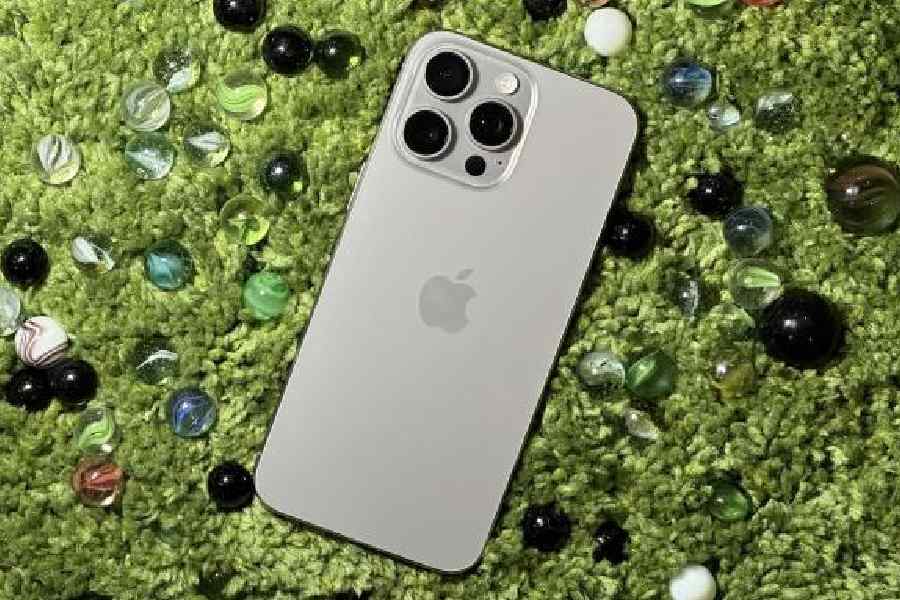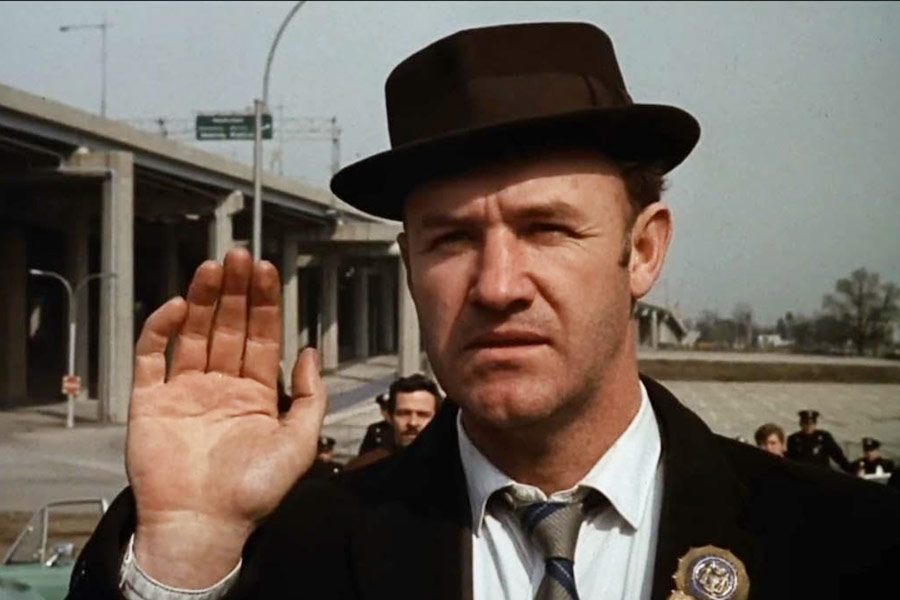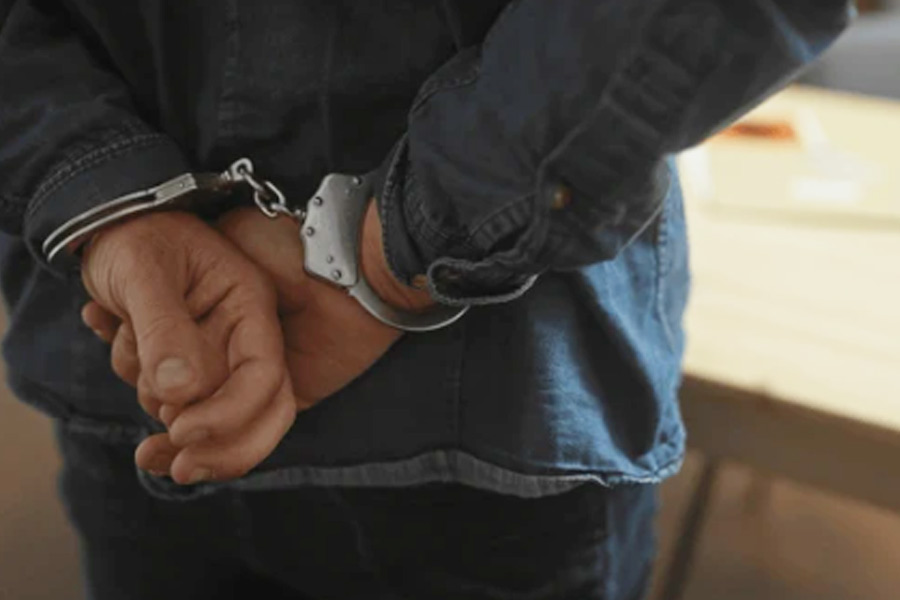Apple always does a great job when it comes to making iPhones feel like pieces of jewellery. They’re shiny and delicate. This year, with the iPhone 15 Pro and iPhone 15 Pro Max, the company has used titanium, which makes the phones lighter without compromising on the luxurious feel. It feels softer in the hand and having used Apple Watch Ultra for some time, I love titanium. But what’s most interesting are the changes that have been made to the camera setup, which now allows you access to seven different pro lenses. Let me take you through a few tips and tricks that will help you get more out of the iPhone 15 Pro and 15 Pro Max.

The photo was taken in ProRaw mode on the iPhone 15 Pro Max and then we cropped in to ensure there was no loss of details
Lock white balance
One thing I have a problem with on all smartphones is the shift in white balance while you’re recording a video. On the iPhone 15 Pro and 15 Pro Max you can fix this in settings. Go into the main settings and then go into camera settings. Go under record video, scroll to the very bottom and then enable lock white balance. Now when I go back to recording a video, the white balance does not change no matter what I’m pointing at and this is going to be great for people who record social media videos with a white backdrop.
Change photo resolution
The pro models give you the ability to capture photos in different resolutions. Previously on the iPhone 14 series, we were limited to 12MP and if you wanted to take advantage of 48MP you had to use ProRaw. Now we can take 24MP photos in addition to that 12 without having to touch Raw. Go into the main settings, go under camera settings, go under formats and then tap on Photo mode and from here you can switch from 12MP to 24MP to get extra resolution. The images are really sharp.

A picture straight out of the iPhone 15 Pro Max without any colour correction
Delve into 48MP high-resolution mode
There are three different resolutions on one camera now but there’s a reason for this. You can use this as a baseline guide to go by — 12MP is going to give you the best low-light results because it’s compressing 48MP to kill the noise, 24MP is going to be a good balance between resolution and noise control, and then 48MP is going to give you the maximum resolution which could also introduce noise but you get large file sizes, ideal for cropping and editing. The good thing is that you have these choices.
Subject detection
There is the ability to identify key objects in photos. The iPhone 14 series could do this with different types of dogs and cats but I haven’t seen it at this level. For example, take a photo of some berries. Tap on the eye on the bottom, you can see it identifies the berries. Next, I took a picture of my daughter and tapped on the eye tool and found more pictures of my daughter from the photo gallery.
More dynamic range with Apple Log
Get more dynamic range and flexibility with your video, thanks to ProRes Log. One of the reasons you’ll want to shoot in ProRes Log is that it gives you extra flexibility not only in your colour correction and grading but also it gives you the most dynamic range. possible out of the sensor, thanks to the image being completely flat, giving you the ability to add the colour and contrast you like. If you want to take advantage of ProRes Log, you’re going to go into the main settings, tap on camera settings, tap on formats, scroll all the way down and make sure Apple ProRes is toggled on. Tap on ProRes Encoding and select Log format. You also have the option for SDR and HDR but Log is going to give you the flat profile that you see a lot of professionals use and it’s going to give you the ultimate flexibility when it comes to colour correction and dynamic range.
External recording
One of the problems with shooting ProRes on your iPhone though is that it consumes a lot of storage. Apple thought about this and they introduced USB-C 3.0 (iPhone 15 Pro and Pro Max). We have external SSD support. Plug it into the USB-C port on the iPhone 15 Pro and 15 Pro Max, load up the camera, go under video, make sure ProRes Log is turned on and you’ll see the words USB-C at the bottom of the screen and it tells you the max time that you can record to the drive. Once this is filled, unplug and offload the footage.
Sure 5x zoom but what about 10x?
There’s a lot of talk around the five times zoom on the Pro Max and while it’s really capable and a great addition, I think the 10x digital zoom is equally great. Now that we have a five-time zoom (optical lens) on this, we can actually zoom a little bit further and get great quality.

Instead of 5x, we decided to go with 8x and yet got a clear shot
Apply a portrait mode effect
You can now apply a portrait mode effect to a non-portrait mode photo in certain cases. Take a regular photo of two people. In such a case, the letter ‘f’ will show even though portrait is off. Go into edit mode in the Photos app and you will be able to adjust the focus, adding blur. You can change the focal point in these photos because depth map information gets stored in these files.
Seven helpers
The iPhone 15 Pro Max comes with the equivalent of seven pro lenses. You get macro, 13mm ultra-wide f/2.2, 24mm f/1.78 main camera, a 28mm and 35mm FOV shift from that main camera, the 2x 48mm equivalent FOV from the previous iPhone, and finally either 77mm f/2.8 on the iPhone 15 Pro or the new 120mm f/2.8 which comes only on the iPhone 15 Pro Max. You can use any of these cameras.

The magic of 5x on the iPhone 15 Pro Max
Lens coating
One noticeable change is when you are shooting videos (and photos). There is a new coating on the lenses that helps greatly with lens flare; large flare rings that were visible in the previous generation have reduced a lot. This also translates into the photography aspect and it’s great to see the different ways the new iPhone handles the chromatic part of strong light flares. For the most part, there is improvement in the way the phone handles light reflection. At night, pictures are drastically sharper.
Action Button
A few words on another big tool that will indirectly help photographers, especially street photographers. The Action button is new to the Pro models. Earlier, the little button above the volume keys was the mute switch that had been on every iPhone since the very first one. Action button is programmable. By default, the button acts like it did earlier — mute switch. In the iPhone’s Settings app, you can change it to do a handful of other things, like turning on the flashlight, launching the camera, or toggling Do Not Disturb. And you can pair it with Apple’s programmable Shortcuts app, which opens up a world of opportunities. As an enthusiastic amateur photographer, I like the fact that I can set it up to start and stop video recording; I can use it to bring up the camera module. All this helps shave off a few seconds to begin shooting, allowing the user to capture blink-and-miss moments.











